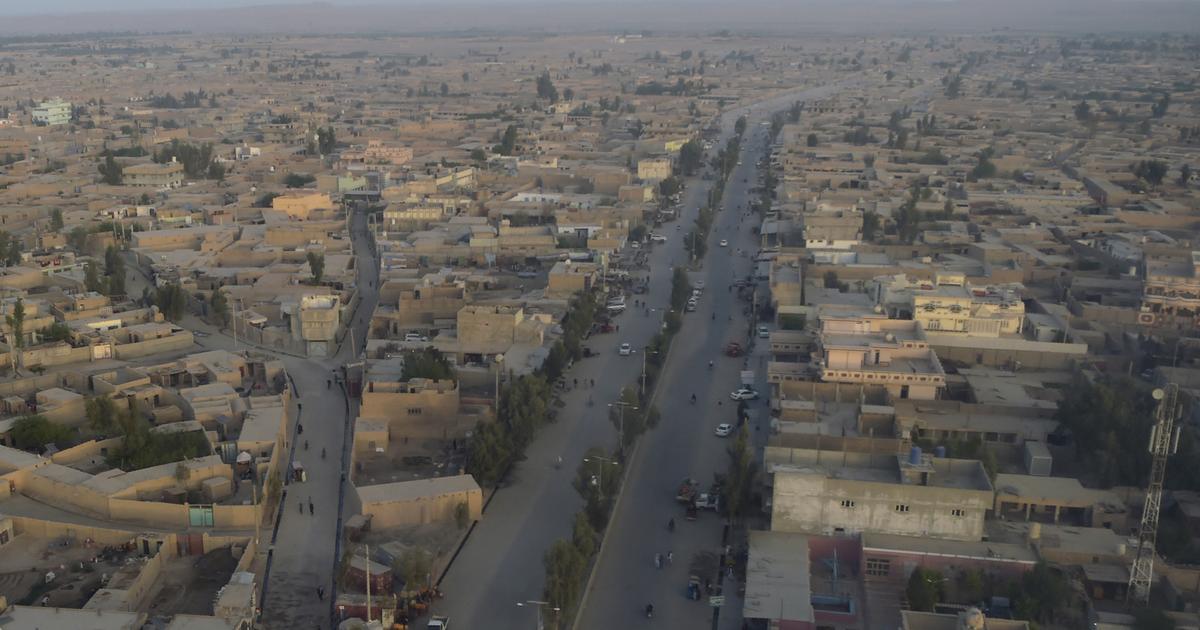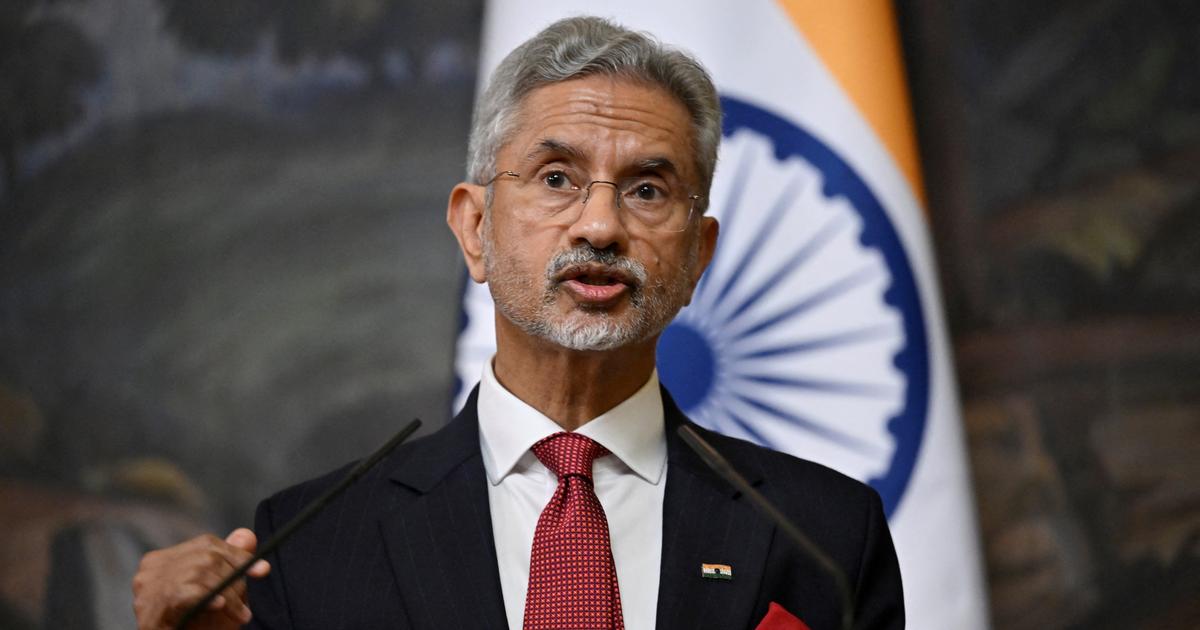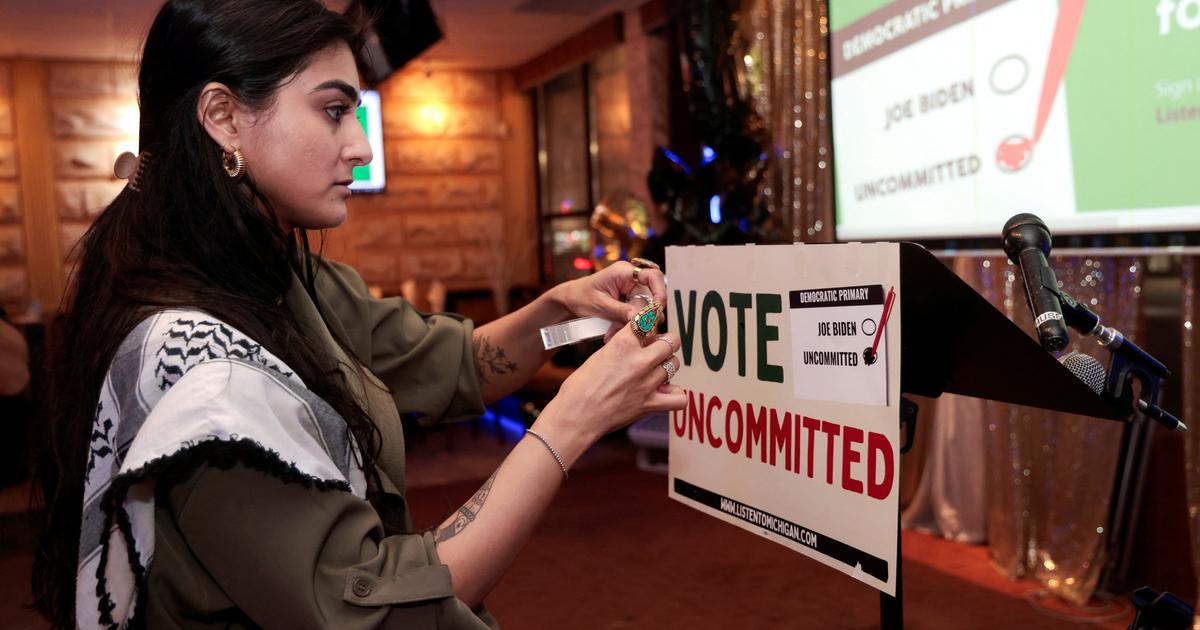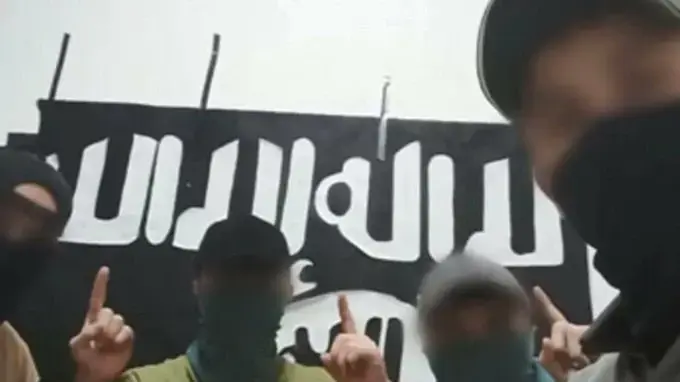Enlarge image
Destroyed oil tanks near Kabul: Those who can are already trying to leave the country.
Photo:
HEDAYATULLAH AMID / EPA
Photo: Susan Walsh / AP
Zalmay Khalilzad
, 70, is the US special envoy for the peace negotiations between the Taliban and the government in Kabul.
The diplomat, political scientist and businessman was born in Mazar-i-Sharif in northern Afghanistan.
Khalilzad went to the USA as an exchange student for the first time.
He later received a university scholarship, stayed in America and returned to Kabul in 2004 as the US ambassador.
On behalf of ex-US President Donald Trump, Khalilzad signed a peace treaty with the Taliban in 2020, but the government of the Islamic Republic in Kabul was not involved.
This is now taking revenge, because the Taliban do not adhere to the terms negotiated with the United States.
In Afghanistan, the price of a Kalashnikov is an indicator of the current level of tension.
In the past six months it went from one hundred to one thousand dollars.
Since US President Joe Biden announced the withdrawal of US troops by September 11, many Afghans have been preparing for civil war.
In their peace treaty with the United States, the Taliban agreed to reduce acts of violence.
They also agreed to negotiate with representatives of the Kabul Republic on a power-sharing.
Instead, however, they launched a massive military offensive to bring more and more districts and important infrastructure under their control.
There are no constructive discussions.
Before a planned peace conference in Istanbul, the Taliban are demanding the release of 7,000 of their prisoners as a prerequisite.
Kabul had already released 5,000 Taliban fighters from prison but received nothing in return.
Last week, chief negotiator Zalmay Khalilzad invited members of NATO and the European Union to Berlin to inform them about the status of the peace negotiations between the Afghan Republic and the Taliban.
Representatives of the radical Islamists, who - despite their aggressive stance on the battlefield - asserted that they could not see a military solution, were also connected via video call from Doha.
After the withdrawal of the western troops, the country is threatened with a major civil war.
Then millions of people are likely to flee Afghanistan again.
Those who can are already trying to leave the country.
"The Taliban will not win."
SPIEGEL:
Ambassador Khalilzad, you are currently talking a lot about the “peace process” in Afghanistan.
What exactly do you mean by that?
Khalilzad:
Well, people long for peace and there has to be peace.
There is no better alternative.
The alternative is an endless war.
That is not what the Afghan people want.
That's not what the United States wants.
That is not what the region needs or wants.
And that is not what our allies and partners in Europe and NATO want either.
SPIEGEL:
Last night there were 142 attacks by the radical Islamic Taliban in the south and north-east of the country.
What leads you to believe that the Taliban are seeking a peaceful settlement?
Khalilzad:
The violence is way too high and the fighting is going on.
That is why the peace talks must move forward as soon as possible, and seriously.
The Taliban spoke to the US and the Europe Group in Berlin this week via video.
You said the Taliban do not see a military solution.
They say the only option is a political one.
Both sides have to be realistic.
If a peace agreement cannot be reached, the alternative is not the Taliban's victory, but a long war.
SPIEGEL:
The Taliban's field commanders report successes every day.
The negotiating team in Doha - with whom you and your Western allies are speaking - are on the other hand diplomatic.
So who is in charge within the Taliban?
Khalilzad:
I believe that this is still the leadership of the Taliban.
But there is another risk factor.
If the groups within the Afghan Republic now split and each go their own way - which is a possibility, and a dangerous one - that would encourage the Taliban, perhaps the hardliners, to seek the military solution.
I hope the Taliban leadership does not opt for a military solution.
We'll see what they do, what they decide.
The Taliban are wasting time
SPIEGEL:
What does a "military solution" mean for the country's future?
Was it all for nothing then?
Khalilzad:
The military solution would mean a repetition of the tragic period of the 1990s, when Afghanistan became the scene of a proxy war after the withdrawal of the Soviet Union.
Many of the leaders of the Taliban and other Afghan groups remember this time as a terrible mistake: that they did not pull themselves together.
Instead, everyone sought an advantage for themselves, and that led to a war that destroyed Kabul.
We expect that those involved will not repeat this mistake.
SPIEGEL
: Aren't the Taliban just buying time by pretending to negotiate?
Khalilzad:
The planned conference in Turkey is a test for the Taliban to find out whether they want to end the conflict through negotiations.
The Afghan government is ready to talk about another release of prisoners, but is very concerned about the high levels of violence.
The Turks have agreed to work with Qatar and the United Nations to arrange this meeting between the Afghan Republic and the Taliban in order to speed up the political negotiations.
So far, the Taliban have not approved the two proposed dates.
They said they had not yet received permission from their guides.
But they want prisoners to be released and they want to be blacklisted.
"War is expensive, even for the Taliban."
SPIEGEL:
Everything looks as if the Taliban are just waiting for the last American soldier to leave Afghan soil.
Talking doesn't cost anything.
Khalilzad:
Yes, but war is expensive, not just for the Afghan security forces that we support, the second we speak here and which we will continue to support.
The war is also expensive for the Taliban.
All sides mourn many deaths.
That is unbearable for the Afghan civilian population.
SPIEGEL:
What leverage does the US and its allies still have?
Khalilzad:
The Taliban have two alternatives. One is international recognition, support to get off the blacklist and the release of your prisoners. But that means negotiating and agreeing to a realistic political solution. And the other alternative is war. And that means that they remain isolated, that they are not accepted as legitimate partners, that they are not blacklisted, and it means the continued resistance of the international community that is working to prevent a military takeover. The Taliban must now decide which path to take. That is the message we gave to the Taliban. We are preparing with our allies for both options.
SPIEGEL:
What was your answer?
Khalilzad:
You say you are working on a plan for a political solution and we think that now is really the time for the Taliban to come up with their own plan for a political solution too.
The negotiations - including the meeting in Istanbul with the mediators - can be used to see how both plans for Afghanistan's future fit together.
We very much hope that the UN and Qatar can help.
"We are continuing to finance the Afghan army."
SPIEGEL:
There is currently fighting in 28 of the country's 34 provinces.
What does it mean when the worst of all possibilities occurs?
Khalilzad:
If the Taliban do not seek a political solution and instead choose the military option, regardless of what they tell us and the world - that they do not believe there is a military solution - then the Afghan armed forces will resist and we support you in this.
The recent history of Afghanistan shows that any attempt by a group to impose their will on others by force leads to a protracted war.
This also applies to the Taliban.
Enlarge image
Afghans are fleeing attacks in Helmand province
Photo: WATAN YAR / EPA
SPIEGEL:
What legacy will the USA leave behind if they leave the country now, after 20 years of reconstruction and war?
Khalilzad:
Afghans are living longer than they used to be, and more Afghans are getting an education than before. Afghanistan's economy, infrastructure, construction and relations with the world have all improved. Institutions that did not exist before are now there, including the institution of the security forces. And civil society has become very active. Afghanistan has changed. And I tell the Taliban leaders I speak to that they need to get to know this new Afghanistan.
We will not make the mistake we made after the withdrawal of the Soviets, when we forgot and gave up Afghanistan.
We are not abandoning Afghanistan.
When the withdrawal is complete, we will start a new chapter in our partnership.
Afghanistan will be high on the list of recipients of US aid, which includes assistance to the Afghan security forces, development aid and humanitarian aid.
And our allies say the same.
What will happen to the collaborators of the Western Alliance?
SPIEGEL:
What happens to the many Afghans who loyally stood by the Americans and their allies and who now fear being persecuted and killed because they are branded as collaborators?
Khalilzad:
The violence is appalling and our aim is to end it with a peace agreement. At best, national reconciliation occurs and energies then focus on enjoying the fruits of peace. But yes, things can get worse if no realistic agreement is reached and the war continues - or, God forbid, past mistakes are repeated. For our part, we will do everything we can to prevent it from being embroiled in a war again. All Afghans are affected by this war. The Afghans who live in the Taliban areas were not spared. Just as much has been taken from them. You deserve a better chance, as do those who have benefited from the accomplishments of the past 20 years.We are preparing for all conceivable alternatives.
SPIEGEL:
When the Red Army left Afghanistan in 1989, the Afghan government only collapsed when Moscow stopped its financial support and supplies.
Will the West keep the government in Kabul economically alive?
Khalilzad:
We will continue to support the Afghan security forces financially.
The USA is receiving a robust US embassy in Kabul and we are monitoring the situation very closely from Afghanistan, as well as from the entire region.
We remain a good friend of Afghanistan, support the country and stand ready for every conceivable future development.
"We made strategic mistakes."
SPIEGEL:
You were personally involved in this mission from the start.
What went wrong?
Khalilzad:
The republic has delivered on many levels.
But there were also challenges, there was obviously considerable corruption and, unfortunately, there were also problems with the elections.
Mistakes were also made in military strategy.
SPIEGEL:
Pakistan has strong interests in Afghanistan and has repeatedly been accused of offering the Taliban a safe haven.
In the end, is the US alliance with Pakistan simply more important to Washington than Afghanistan?
Khalilzad:
We believe that Pakistan has a legitimate interest in Afghanistan, and Afghans should respect those legitimate interests.
SPIEGEL:
What legitimate interests would that be?
Khalilzad:
The legitimate interest is that Afghanistan's soil should not be used by hostile forces against Pakistan.
Conversely, Afghanistan has an interest in ensuring that Pakistani soil is not used by forces that are hostile to Afghanistan.
We are working with the UK to improve cooperation between Afghanistan and Pakistan so that the countries may come to a security agreement with one another.
This is an important part of our peace effort.
SPIEGEL:
Why should Islamabad make peace with the current Afghan republic after the US has already announced its withdrawal and the Taliban are likely to return shortly - Pakistan wanted and promoted both.
Khalilzad
: Well, if these peace efforts are unsuccessful and there is no agreement between Pakistan and Afghanistan, Pakistan will suffer.
Pakistan will be blamed for this because many of the Taliban leaders live in Pakistan.
In any case, this meant missed opportunities for both countries.
The leaders in Pakistan and Afghanistan both have trade and development interests.
We believe that peace in Afghanistan could make a lot possible.
SPIEGEL:
As an American Afghan, you helped the United States get out of America's longest war last year.
Have you negotiated well enough for your original people, the Afghans?
Khalilzad:
I have not forgotten who I am and where I was born and Afghans have a right to peace. But ultimately the responsibility for whether that can happen does not lie with me, of course, but with both sides, the leaders of the Taliban and the leaders of the republic. Afghan leaders say they have learned from the past. We'll see if they put their country first or individual interests. The Taliban must now make an important historic decision.















